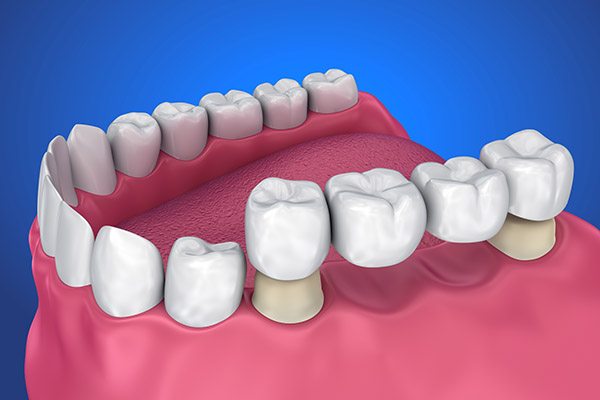When a Tooth Abscess Is a Dental Emergency

A tooth abscess is a dental emergency because it has a risk of the infection expanding to other parts of the body. If an abscess spreads to the brain, it can have life-threatening effects.
Abscesses can be incredibly painful, and the pain is often accompanied by swelling. The severity of the pain and swelling is often used to assess if an abscess counts as an emergency, since it is proportional to how much the infection has spread. Failing to treat an abscess promptly can lead to the infection spreading into the jawbone and other areas.
Getting treatment for a dental emergency
Anyone who notices an abscess should head to a dentist immediately for treatment, especially if it is accompanied by symptoms like difficulty breathing, headaches, problems swallowing, or a fever. These are typically signs that the infection is spreading to other parts of the body.
An abscess that causes headaches, earaches, or pain around the neck is a significant cause for concern because that is a sign that the infection might be spreading toward the brain. The dentist will evaluate the severity of the patient’s condition during their appointment by performing tests like physically touching the affected tooth to determine if it is sensitive to pressure or touch. Diagnostics like x-rays or CT scans might also be used to paint a clearer picture of what’s going on inside the tooth.
Abscess treatment options
Ways that a dentist might treat an abscess include the following:
Draining the abscess: This involves making an incision into the abscess so the pus inside it drains out. The area is then washed and disinfected with a saline solution. A rubber drain might be inserted into the incision so the area keeps draining as the swelling goes down.
Performing root canal therapy: This procedure is used to address an infection in a tooth. It entails using a dental drill to open up the pulp chamber, and then the tooth’s nerve and blood vessels are extracted. Medication is implanted into the pulp chamber to kill any infection there before sealing the tooth with gutta-percha. The tooth is then enclosed with a crown to hold it together, restore its aesthetics, and protect it against bite forces.
Extracting the infected tooth: In some cases, the most effective way to treat an abscess is by extracting the affected tooth. This is often a last resort when the dentist needs to stop the infection from spreading. The extracted tooth can then be replaced by an oral prosthetic.
Antibiotics: Some tooth abscesses can be treated by prescribing antibiotics. This approach helps to prevent the infection from spreading. It is often recommended for patients with weakened immune systems.
Frequently asked questions about tooth abscess
Let us go through the answers to frequently asked questions about tooth abscesses.
1. What occurs if a tooth abscess is left untreated?
An abscess can expand to other parts of the body when left untreated for weeks or months. The infection can be life threatening if it spreads to more delicate parts of the body, like the heart or brain. Leaving an abscess unaddressed can lead to severe symptoms, like fever, difficulty breathing or swallowing, confusion, and fatigue. A tooth abscess counts as a dental emergency because it requires immediate treatment to prevent potentially life-threatening symptoms.
2. How do dental abscesses form?
An abscess is often the result of a tooth infection that has been left unaddressed. It occurs when bacteria in the mouth get into the pulp chamber. The pulp chamber is the innermost layer of a tooth, and it contains connective tissues, blood vessels, and nerves. It is protected by two other layers, called the dentin and enamel. It is sealed off from the rest of the tooth so irritants like bacteria and saliva cannot reach it.
However, the layers of dentin and enamel protecting the pulp chamber can be damaged by tooth decay or trauma. As a result, the pulp chamber can be exposed to bacteria in the mouth, which leads to infection and eventually, an abscess. The only way to prevent an abscess from spreading to other parts of the body is by getting treatment from a dentist immediately.
Get the care that you need for your dental emergency
Are you dealing with a tooth abscess? Give us a call or head to our Torrance clinic to get the treatment that you need for this dental emergency.
Request an appointment here: https://smilewellsouthbay.com or call SmileWell Family Dentistry at (310) 904-6375 for an appointment in our Torrance office.
Check out what others are saying about our dental services on Yelp: Emergency Dental Care in Torrance, CA.
Recent Posts
Patients who are dealing with severe dental issues may think they should go to the ER for emergency dental care. This, however, is often ill-advised, as it may not be helpful in providing the proper treatments needed and can result in other problems arising.The following are a couple of reasons why patients should not go…
Looking into your Emergency Dental Care options? Dental emergencies are often scary, and all too many people visit the emergency room as they are not prepared when it comes to how to treat this type of immediate concern. However, it is often best to visit the emergency dentist for emergency dental care as they can…
An emergency dentist can provide tooth-saving care in emergency dental situations. However, it is common not to know what constitutes a dental emergency nor how to handle common situations while waiting for dental care. Understanding when to seek help from an emergency dentist and how to manage the situation before you get to their office…
While regular dental visits are vital for maintaining oral health, an urgent dental problem requires an emergency dentist. Dental emergencies, including severe pain, injury, or infection, require immediate attention to prevent complications and ensure the best outcome. Knowing when to seek care from an emergency dentist can be key to preserving oral health.Severe tooth pain…


